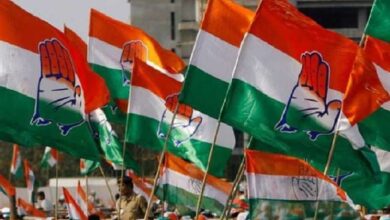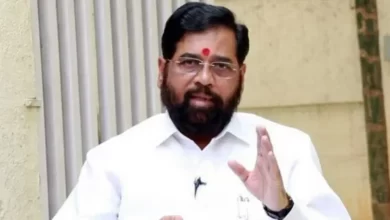Responsibilities of People’s Representatives

Most of the countries that became independent after the fall of imperialism decided to adopt the democratic system.
Most of the countries that became independent after the fall of imperialism decided to adopt the democratic system. It presented many attractions like equality, equality, autonomy, transparency etc. to give human dignity to all. In this, a new ray of hope appeared to those people of the society who were pushed back socially, economically and culturally by their own people due to some or the other imposed discrimination for centuries. In this, apartheid, gender discrimination, caste discrimination, untouchability, racial discrimination and not knowing what other grounds were made. Today most of these have been declared unacceptable. But democracy has weakened in many countries in the last sixty-seven years. India has been lucky in this regard. Here the government which is defeated by a unanimous vote in the Parliament also withdraws from power without any hesitation.
The spirit of democracy has been present in the culture of India for thousands of years. Munshi Premchand’s classic story ‘Panch Parameshwara’ clearly shows the tradition of following the Raj Dharma of India. This heritage has been contributing in giving the desired form to contemporary democracy. Political upheaval in democratic countries will not be called unexpected. In a successful democracy, the expectation would be that the participants, in favor of different ideologies and opinions, should maintain their faith in decency, harmony, restraint and dialogue in mutual and parliamentary behavior. In the practical form of the parliamentary system, it performs its function as a pros and cons. The Leader of the Opposition gets ministerial-level recognition and authority.
All honorable MPs make policies, rules and laws for the country. The whole country, especially the young generation looks up to him, observes and observes his conduct and behavior closely and is quoted to imitate him. In such a situation, if the reputation of the Parliament and the MPs, the members of the Legislative Assemblies and the ‘Panch Parameshwaras’ of the Panchayat decreases, the behavior between the ruling party and the opposition is not decent and mutual respect, then the whole country has to worry. Will be It can’t be said that this has been happening for many years, it will not change!
In democracy, mainly people’s representatives should be the drivers of change. He alone can give impetus to meaningful and acceptable changes, give human dignity to the life of Bapu’s dearest class standing at the end of the line, give such direction to every concept of development and every plan-project made for him. in which special attention should be given to this category. The Constitution of India confirms this expectation.
Its creators knew that all this would be possible only if education reached all. The fragmented India after Partition was suffering from acute shortage of resources and poverty. Notwithstanding this knowingly, the Constitution required the State Government to provide compulsory and free education to every child up to the age of fourteen in the next ten years (1960) up to class VIII. Even at that time the world was changing rapidly, imperialism was taking its last breath. New definitions of development and progress were emerging. Those whose empires were coming to an end, their own problems were emerging. In the newly independent countries, the problems arising out of centuries of exploitation were standing in front of them in a frightening form.
Mahatma Gandhi was not only explaining the importance of education throughout his life, he was also constantly experimenting and trying to give it a suitable and necessary form for the people of India. When the constitution was being drafted, it was understood by the national leadership who grew up under his umbrella that the future prophecy would certainly come true that the kingdoms ahead would be empires of knowledge. Therefore, the most important basis in the efforts made for the growth, storage and use of knowledge wealth will be the universalization of education. Even today, we have not been able to achieve the ten-year constitutional-imposed goal, but to reach the state of touching eighty percent from eighteen percent literacy will be considered a big achievement in itself and that too when the population has increased three and a half times. Ho.
The youth of India have displayed the excellence of their intellectual potential not only in the country but also abroad. India has the experience, knowledge, understanding and talent which has to be harnessed, nurtured and promoted so that its positive impact can spread its aura to the global level. It is not impossible if the youth of India can be given inspiration in schools, colleges and universities to increase their self-confidence and widen the horizon of their ideas and concepts. It is also necessary that outside the institutions only such people should be visible to them, who are known for their sacrifice, service, hard work, honesty and unblemished character.
Due to the decline of human values, many situations of confusion are arising in front of the youth. They are not only seeing the positive side of progress and development in this third decade of the twenty-first century, but they are also seeing that the negative aspects of this development journey have now manifested in a frightening form before mankind. In 1909, Gandhi had warned about the negative aspects of Western civilization, but it was not considered necessary to pay the required attention to it, because the policy makers and planners of mankind were so overwhelmed by the progress of science and technology that they asked every Objective analysis of the changes taking place on the side did not separate the acceptable and unacceptable aspects.
Change and progress go hand in hand for the last hundred years. Change is visible everywhere, but not every change is a sign of progress. The same concepts of progress and development have been more successful, whose roots were deeply related to the learning tradition and culture there. Gandhiji explained this very effectively and said – ‘I will keep the windows and doors of my house open, so that fresh pure air can come. But I will not accept such a storm which destroys my house itself.’ A bird’s eye view of the progress and development of the countries that became independent after the Second World War will make it clear that those whose concept of development was borrowed were left behind. Many countries in Africa fall into this category. Those whose concept of development was deeply rooted in the soil of that place, they were successful. In these, the progress of Germany and Japan after World War II presents perfect examples.
Man cannot stop the flow of time and change. He can guide change with his experience, understanding and knowledge. His right thinking in this direction will develop only when such an environment is created for the children and youth in which their character can be built in the right direction and they can imbibe human values. The entire responsibility cannot be put on schools, colleges and universities alone. Society has to take responsibility, present exemplary conduct in front of future generations. The most important contribution in this can be made by the elected public representatives at every level.
,






